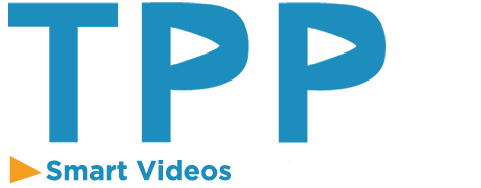- Description
- Curriculum
- Reviews
Mini Pharmaceutical MBA Program
Advance Your Career in Pharma with Strategic Business Insights
At TPP Academy, our Mini Pharmaceutical MBA is a dynamic, intensive program designed to bridge the gap between pharmaceutical expertise and business leadership. This program equips professionals in the pharmaceutical and healthcare industries with the essential managerial and strategic skills needed to thrive in today’s competitive environment.
Whether you’re a pharmacist, medical rep, or a healthcare professional aspiring to move into leadership roles, this program will empower you with the tools to make smarter business decisions and drive impactful results.
Program Highlights:
-
Human Development
Build self-awareness, emotional intelligence, and interpersonal skills essential for personal and team success. -
Pharmaceutical Financial Management
Learn to interpret financial data, manage budgets, and make informed financial decisions specific to the pharmaceutical industry. -
Pharmaceutical Marketing Management
Master the fundamentals of market analysis, branding, and product positioning to effectively promote pharmaceutical products in a regulated environment. -
Transformational Leadership
Develop the mindset and skills of a transformative leader who inspires change, fosters innovation, and leads high-performing teams. -
Introduction to Management
Gain a solid foundation in core management principles, including planning, organizing, decision-making, and problem-solving within pharma settings.
مواعيد امتحانات لعام 2025
Exam Date 2025
| Jan | Feb | Mar | Apr | May |
| 02/02 | 27/02 | 31/03 | 30/04 | 31/05 |
| Sun | Thur | Mon | Wed | Sat |
-
1Accounting - Part 1Preview Video lesson
-
2Accounting- Part 2Video lesson
-
3Accounting- Part 3Video lesson
-
4Financial Statements- Part 1Video lesson
-
5Financial statements- Part 2Video lesson
-
6Financial Analysis – Part 1Video lesson
-
7Financial Analysis - Part 2Video lesson
-
8Financial Analysis - Part 3Video lesson
-
9Management definition, Skills and LevelsVideo lesson
-
10Stages of ManagementVideo lesson
-
11Productivity Within the ManagementVideo lesson
-
12Management theoriesVideo lesson
Management as a field has evolved through different theories (sometimes called schools of thought), each reflecting how people believed organizations should be run at that time. Here are the main management theories:
1. Classical Management Theories (late 19th – early 20th century)
These focused on efficiency, structure, and productivity.
-
Scientific Management (Frederick Taylor) → Use time-and-motion studies, standardization, incentives to improve worker productivity.
-
Administrative Theory (Henri Fayol) → 14 principles of management (division of work, authority, discipline, unity of command, etc.).
-
Bureaucratic Theory (Max Weber) → Hierarchy, rules, impersonality, and merit-based advancement.
📌 Example: Early factories where workers were closely monitored to maximize efficiency.
2. Behavioral Management Theories (1930s–1950s)
Shifted focus from machines to people.
-
Hawthorne Studies (Elton Mayo) → Showed that social and psychological factors affect productivity.
-
Maslow’s Hierarchy of Needs → Motivation depends on satisfying needs (physiological → self-actualization).
-
Douglas McGregor (Theory X & Y) → X = employees are lazy and need control, Y = employees are self-motivated if empowered.
📌 Example: Companies introducing teamwork, motivation programs, and employee welfare initiatives.
3. Quantitative / Management Science Theory (1940s–1960s)
Applied mathematics, statistics, and models to decision-making.
-
Operations research, linear programming, decision theory, forecasting models.
📌 Example: Airlines using optimization models for scheduling flights.
4. Systems Theory (1950s–1960s)
Organizations viewed as systems of interrelated parts.
-
Inputs → Processes → Outputs → Feedback.
📌 Example: A hospital where doctors, nurses, equipment, and administration work together as one system.
5. Contingency Theory (1960s–1970s)
“No one best way” → The best management style depends on the situation (environment, size, technology, people).
📌 Example: A startup may need flexible leadership, while a large bank needs structured rules.
6. Modern Theories (1980s–today)
-
Total Quality Management (Deming, Juran) → Continuous improvement, customer focus.
-
Lean Management & Six Sigma → Efficiency, waste reduction, quality improvement.
-
Learning Organization (Peter Senge) → Organizations must continuously adapt and learn.
-
Management by Objectives (Drucker) → Setting measurable goals and aligning employees.
-
Agile Management → Flexibility, collaboration, and iterative progress (popular in tech).
📌 Example: Toyota using Lean Production; tech firms using Agile and Scrum.
✅ In summary, the main theories of management can be grouped as:
-
Classical (efficiency, structure)
-
Behavioral (human relations, motivation)
-
Quantitative (math & models)
-
Systems (organization as a system)
-
Contingency (situational approach)
-
Modern approaches (TQM, Lean, Agile, etc.).
-
-
13Definition Of StrategyVideo lesson
-
14Introduction to Professional developmentVideo lesson
-
15Dunning Kruger CurveVideo lesson
-
16TantalizationVideo lesson
-
17Communication Skills ( episode - 1 )Video lesson
-
18Communication Skills ( episode – 2 )Video lesson
-
19Communication Skills ( episode - 3 )Video lesson
-
20Good Sales and Bad SalesVideo lesson
-
21Good Sales ElementsVideo lesson
-
22Sales Techniques (Cross Sale & Upsale)Video lesson
-
23Types of Customers and How to Deal with ThemVideo lesson
-
24Secrets of Excellence in Customer ServiceVideo lesson
-
25Time Management by Lara AbbasiVideo lesson
-
26Time Management by Fares ZahranVideo lesson
-
27Problem SolvingVideo lesson
-
28Introduction to Practical Management PracticesVideo lesson
-
29business administration in practiceVideo lesson
-
30Practical Management Practices: From employee to managerVideo lesson
-
31Practical Management Practices: The four rules for workVideo lesson
-
32Practical Management Practices: From achievement to achievement beyond expectationVideo lesson
-
33Practical Management Practices with team members part 1Video lesson
-
34Practical Management Practices with team members part 2Video lesson
-
35Practical Management Practices with team members part 3Video lesson
-
36Practical Management Practices with team members part 4Video lesson
-
37Practical Management Practices with team members part 5Video lesson
-
38Practical Management Practices in work environment part 1Video lesson
-
39Practical Management Practices in work environment part 2Video lesson
-
40Practical Management Practices in work environment part 3Video lesson
-
41Practical Management Practices in financial transaction part 1Video lesson
-
42Practical Management Practices in financial transaction part 2Video lesson
-
43Practical recommendation for personal growthVideo lesson
-
44Human development Quiz17 questions
-
45The Difference between pharmaceutical & regular marketingVideo lesson
-
46Marketing mix, STP and AnalysisVideo lesson
-
47Marketing mix ProductVideo lesson
-
48Marketing mix / product / FABVVideo lesson
-
49Marketing mix - PricingVideo lesson
-
50Marketing Mix - Promotion and placeVideo lesson
-
51Analysis tools - SWOTVideo lesson
-
52Analysis tools PESTELVideo lesson
-
53Analysis Tools Boston MaatrixVideo lesson
-
54Analysis Tools Ansoff Grid Pricing and Quality GridVideo lesson
-
55Analysis Tools Promotion and Pricing MatrixVideo lesson
-
56Segmentation, targeting and positioningVideo lesson








